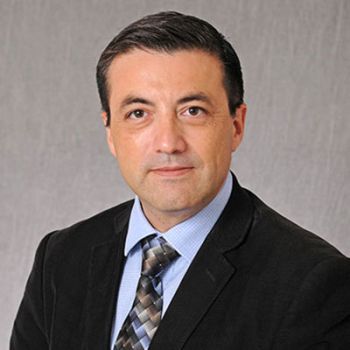
A $500,000 grant from the Melanoma Research Foundation has been awarded to a team of researchers, led by Alejandro Villagra, Ph.D., assistant professor in the Department of Biochemistry and Molecular Medicine at the George Washington University’s School of Medicine and Health Sciences, to further its work on the use of immunotherapy to treat melanoma.
The team included Villagra; Eduardo M. Sotomayor, M.D., director of the GW Cancer Center; and Jeffrey S. Weber, M.D., Ph.D., deputy director at the Laura and Isaac Perlmutter Cancer Center at the NYU Langone Medical Center.
“We’ve been working, in the last five years, to merge two different areas of therapy. One is immunotherapy and the other is working with epigenetic modifiers,” Villagra said. “In a nutshell, we have found in our data using in vitro and in vivo models, that when you mix these two different therapies, you can actually improve the efficiency of the immune system to attack and control cancer.”
Because of that, he said, the researchers are not focusing on the tumor itself, but trying to help people’s bodies recognize the cancer and fight it. That process usually is natural in people, he said, but sometimes it does not work well.
The aim is to improve the body’s abilities to fight cancer on its own, without any targeted therapy or chemotherapy, he added.
Villagra noted the importance of receiving a grant from an organization as prestigious as the Melanoma Research Foundation, adding that it’s also an advantage to receive a team award and be able to partner with NYU Langone on the research.
The grant runs from Oct. 1, 2016, to Sept. 30, 2018.

